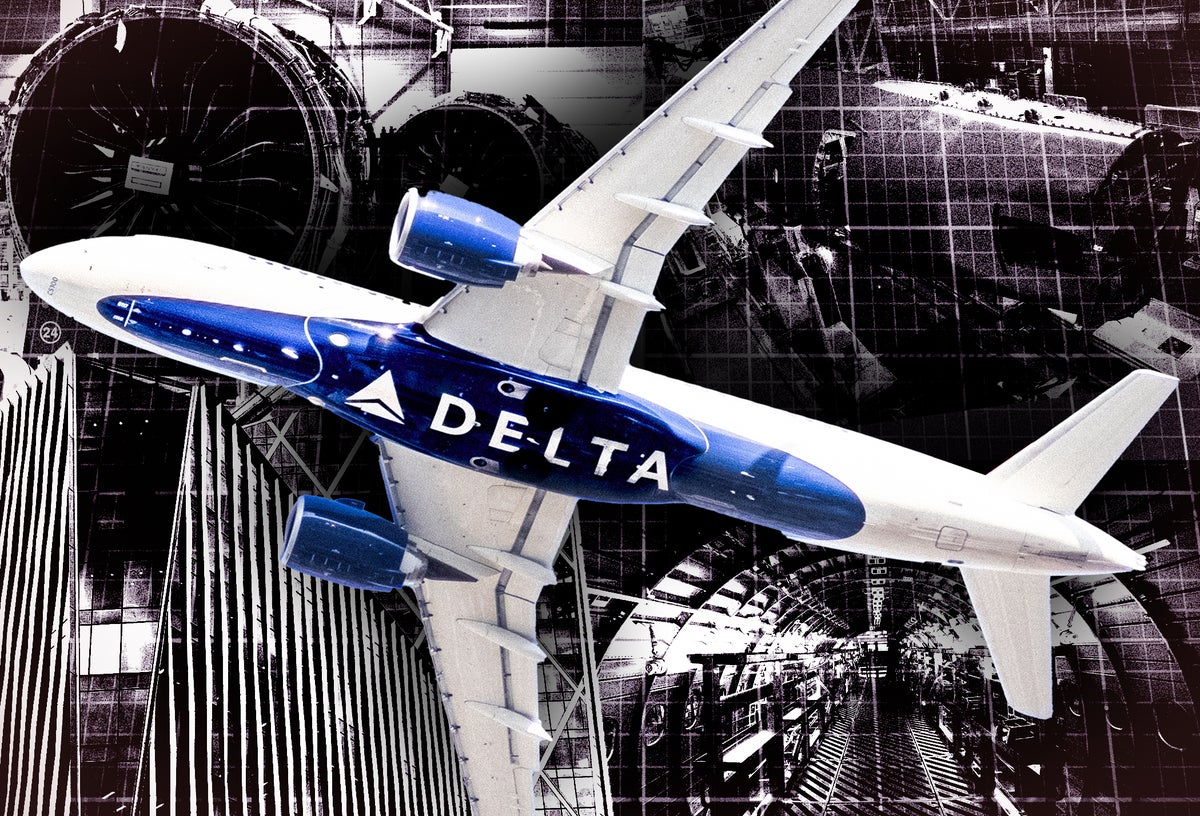
One of Europe’s largest package holiday operators has been caught up in a worldwide scandal that grounded hundreds of planes – and could ground hundreds more.
The case of a London-based company that allegedly supplied jet-engine parts using forged paperwork has already grounded almost 100 aircraft as regulators and airlines scrambled to assess the scale of the issue that involves potentially thousands of airline parts sold by AOG Technics.
On Monday last week, Delta Air Lines became the fourth major US airline to have found “a small number” of components supplied by the little-known firm on its planes.
And now the contagion has spread to Europe, as Tui confirmed that a component on one of its aircraft supplied by AOG Technics has been removed. They are no longer on the airline’s supplier list.
A spokesperson for the company said: “We’re aware of the issue surrounding parts being supplied by a particular agency and we would like to thank the CAA for their swift notification and support. We can confirm that one installed component was identified and quickly removed, and the company in question has been removed from our approved supplier list.
“We would like to reassure customers that a full audit has taken place and no other parts supplied by the named company are present in the TUI Airways fleet.”
Since the alleged forgery was discovered in June by a Portuguese repair shop, European and UK regulators put out warnings in August to airlines about “suspected unapproved parts distributed by AOG Technics”.
The parts allegedly supplied by the firm without valid certificates have been found inside CFM56 engines, which power several older Airbus and Boeing jets.
Now the company faces a legal battle, as jet engine maker CFM International met them in the High Court in London two weeks ago, saying the company have engaged in a “deliberate, dishonest and sophisticated scheme to deceive the market”.
The court heard that the claimants had “compelling documentary evidence” that thousands of jet engine parts had been sold to airlines operating commercial aircraft.
Court filings state that the sale of these engine parts without genuine documentation “potentially puts aircraft safety in jeopardy and renders it impossible for operators who have purchased these parts to verify the airworthiness of their engines”.
After the scandal was first broken in September by Bloomberg, the company has deleted its website and LinkedIn profiles.
Court filings accuse the company of creating several fake LinkedIn profiles claiming to be company executives, with searches revealing their pictures to be model stock photographs and people who don’t appear to exist.
TUI confirmed that a component on one of its aircraft supplied by AOG Technics has been removed— (PA)
The company is registered on Companies House, with a sole director Jose Alejandro Zamora Yrala, who does not appear to have any online footprint.
Upon its founding in 2015 the business originally listed its address in Hove, West Sussex, at what appears to be a residential property, before moving a few more times in that same area and to parts of London before finally settling in its current office.
The Independent visited the offices last week to try and speak to Mr Yrala, a Venezuelan national, about the controversy that has engulfed his company.
AOG Technics is currently located at the Nova Building at 11 Bressenden Place, a plush high-end office space nestled close to London Victoria station.
It is the home of high-flying consultancies and private equity firms and is just minutes away from restaurants and bars replete with suited executives having business lunches and drinks.
Delta Air Lines became the fourth major US airline to have found ‘a small number’ of components supplied by AOG Technics on its planes— (AP)
However, AOG Technics aren’t there. We were told by staff at the premises they have a “virtual office”, meaning they have paid to register the business name but have no physical presence.
The mystery over AOG Technics and its owner could soon be revealed as at the High Court Judge Richard Meade ruled that AOG and Zamora Yrala should disclose “invoices, release certificates, memos of shipment and purchase orders” for 230 transactions.
CFM welcomed the court order, which it said would help the industry identify unapproved parts more rapidly.
The statement read: “We applaud the court’s ruling compelling AOG Technics to release documentation that will aid the industry in more rapidly identifying parts sold with fraudulent documentation so they can be promptly addressed.
“Safety is our first priority and we are taking aggressive legal action against AOG Technics for selling unapproved aircraft engine parts with falsified airworthiness documentation. We remain united with the aviation community in working to keep unapproved parts out of the global supply chain.”
A UK Civil Aviation Authority spokesperson said: “We’re supporting the Federal Aviation Administration and European Aviation Safety Agency to look into the supply of unapproved parts by UK-base company AOG Technics.
“We notified UK organisations of this issue recommending all CAMO, operators, owners and maintainers and distributors should investigate their records thoroughly to determine the source of any parts acquired either directly or indirectly from AOG Technics.”
A spokesperson for Delta Air Lines said: “Delta has been informed by one of our engine service providers that a small number of engines they overhauled for us contain certain parts that do not meet documentation requirements.
“Working with the overhaul provider, we are in the process of replacing those parts and remain in compliance with all FAA guidelines – because safety is always our priority.”
AOG Technics was approached for comment.
Additional reporting by Reuters







